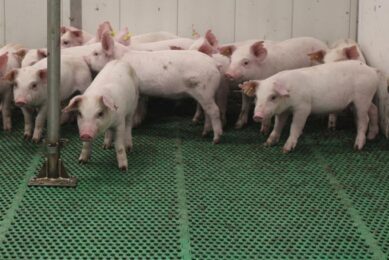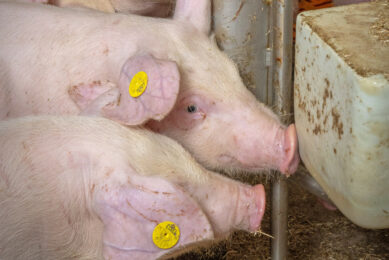Mycotoxins are More Dangerous to Profits than Enteric Diseases
The cost of incurring and treating enteric diseases (E coli scours, PED, Porcine Enteropathy, Salmonellosis, Swine dysentery, Colitis, etc.) spread across the whole finishing herd seems to be in the region of $1.90/pig (€1.60, £1.00), raising production cost by about 2% finished pig.
The cost of incurring and treating enteric diseases (E coli scours, PED, Porcine Enteropathy, Salmonellosis, Swine dysentery , Colitis, etc.) spread across the whole finishing herd seems to be in the region of $1.90/pig (€1.60, £1.00), raising production cost by about 2% finished pig.
We are all familiar with these diseases and what to do about them in terms of veterinary help and drug treatment.
Not so with mycotoxicosis in pigs 3 to 35 kg raised production cost by18%.Severe mycotoxicosis lasting 4 to 5 weeks raised the cost of the section of the herd of finishing pigs which were affected by 24%. Mycotoxicosis in gilts caused whole herd empty days to rise by 19 days- a production cost rise of €45/ sow /year (€2/ finished pig) or 2%. Mycotoxicosis in sows (anoestrus, returns-to-service, abortions, mummifieds, splay-legs and veterinary-diagnosed associated secondary infections) of varying severity caused production cost to rise between 30-74% varying from 6 weeks to 6 months.
Because of the inherent variability of these costs it is difficult to provide a ballpark figure on what a typical extra cost might be per finished pig from herds affected in this way, but it must be considerable year-on-year.
When one considers that the payback from a comprehensive annual protective protocol against mycotoxicoses, including extra labour costs, can provide a return of up to 7 to 1, it suggests that greater attention on how to combat the insidious effect of fungal-borne diseases is overdue.











